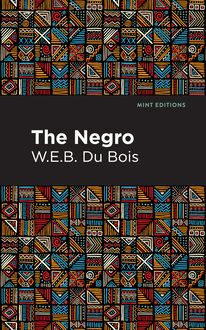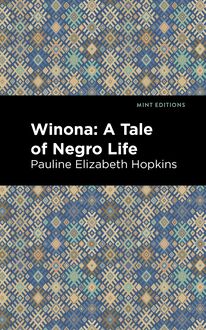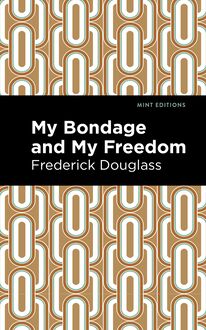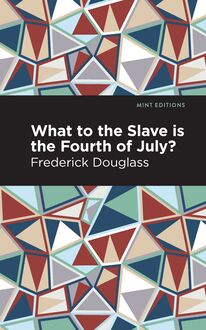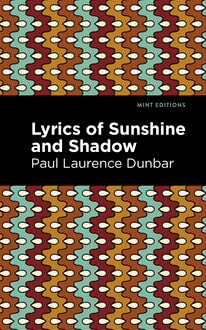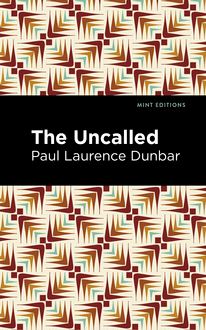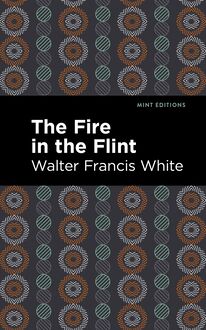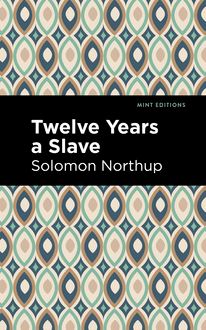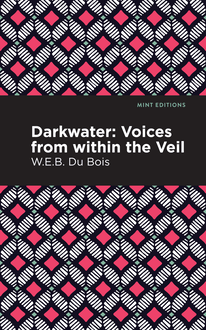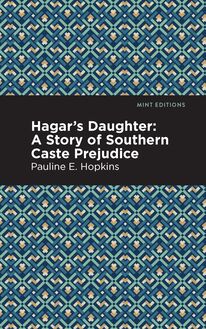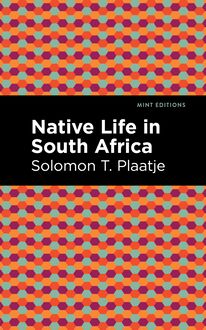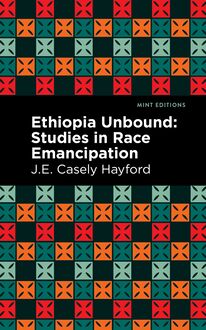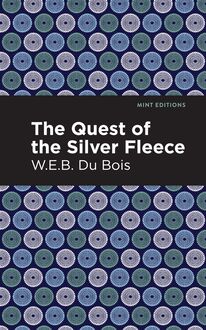-
 Univers
Univers
-
 Ebooks
Ebooks
-
 Livres audio
Livres audio
-
 Presse
Presse
-
 Podcasts
Podcasts
-
 BD
BD
-
 Documents
Documents
-
- Cours
- Révisions
- Ressources pédagogiques
- Sciences de l’éducation
- Manuels scolaires
- Langues
- Travaux de classe
- Annales de BEP
- Etudes supérieures
- Maternelle et primaire
- Fiches de lecture
- Orientation scolaire
- Méthodologie
- Corrigés de devoir
- Annales d’examens et concours
- Annales du bac
- Annales du brevet
- Rapports de stage
La lecture à portée de main
Vous pourrez modifier la taille du texte de cet ouvrage
Découvre YouScribe en t'inscrivant gratuitement
Je m'inscrisDécouvre YouScribe en t'inscrivant gratuitement
Je m'inscrisEn savoir plus
Vous pourrez modifier la taille du texte de cet ouvrage
En savoir plus

Description
“M.W. Gibbs recalls a life of myriad transformations-from a youth of poverty to success in gold rush California to election as the first black municipal judge in America to service as the American consul to Madagascar. And Gibbs tells it all with a verve and candor. It is an autobiography worthy of its subject-and just as much worth reading today as when it was first published in 1902.”-Tom W. Dillard
Shadow and Light: An Autobiography (1902) is an astonishingly rich historical document from one of the most exceptional pioneers in nineteen-century America. Mifflin Wistar Gibbs’s account of his towering success as an African American businessman, newspaper owner, judge, and diplomat is a voluminous narrative of one man’s triumph despite the staggering racial inequalities of the time.
Born into a free black family in Philadelphia in 1823, the young Mifflin Wistar Gibbs demonstrated a precociousness as a writer and orator as young as 16 years old. Although involved in the black literary and political scenes in Philadelphia, Gibbs was disillusioned with the city’s racial inequality; He subsequently became involved in abolitionist activities, and was an active participant in the Underground Railroad.
In his late 2o’s he was invited by Fredrick Douglas to speak on an abolitionist lecture circuit throughout New York, Ohio, and Pennsylvania. In 1850 Gibbs left for the west to seek a fortune in the California gold rush. By the late 1850’s he had built a successful business, and eventually established two black-owned newspapers in the Bay Area. When new discriminatory laws were passed in California, Gibbs moved to Victoria, where he became extremely successful as a businessman and a leader of the black community. Once the civil war had ended, he returned to the United States where he earned a law degree, moved to the south, and by 1873 had become the first African American elected as a municipal judge. From his beginning as a fatherless boy, to his post as an American diplomat, Shadow and Light is a stirring testament to the achievements of an extraordinary American pioneer.
With an eye-catching new cover, and professionally typeset manuscript, this edition of Shadow and Light: An Autobiography is both modern and readable.
Sujets
Informations
| Publié par | Mint Editions |
| Date de parution | 17 novembre 2020 |
| Nombre de lectures | 0 |
| EAN13 | 9781513266893 |
| Langue | English |
Informations légales : prix de location à la page 0,0500€. Cette information est donnée uniquement à titre indicatif conformément à la législation en vigueur.
Extrait
Shadow and Light
An Autobiography
Mifflin Wistar Gibbs
Shadow and Light: An Autobiography was first published in 1902.
This edition published by Mint Editions 2020.
ISBN 9781513266459 | E-ISBN 9781513266893
Published by Mint Editions®
minteditionbooks.com
Publishing Director: Jennifer Newens
Project Manager: Gabrielle Maudiere
Design & Production: Rachel Lopez Metzger
Typesetting: Westchester Publishing Services
C ONTENTS P REFACE I NTRODUCTION 1 . Parents, School and Teacher—Foundation of the Negroes’ Mechanical Knowledge—First Brick A. M. E. Church—Bishop Allen—Olive Cemetery—Harriet Smith Home—“Underground Railroad”—Incidents on the Road—William and Ellen Craft—William Box Brown 2 . Nat Turner’s Insurrection—Experience on a Maryland Plantation—First Street Cars in Philadelphia—Anti-Slavery Meetings—Amusing Incidents—Opposition of Negro Churches—Kossuth Celebration, and the Unwelcome Guest 3 . Cinguez, the Hero of Armistead Captives—The Threshold of Man’s Estate—My First Lecturing Tour with Frederic Douglass—His “Life and Times”—Pen Picture of George William Curtis of Ante-Bellum Conditions—Harriet Beecher Stowe, Lucretia Mott, and Frances E. Harper, a Noble Band of Women—“Go Do Some Great Thing”—Journey to California—Incidents at Panama 4 . Arrival at San Francisco—Getting Domiciled and Seeking Work—Strike of White Employees—Lester & Gibbs, Importers—Assaulted in Our Store—First Protest from the Colored Men of California—Poll Tax 5 . “Vigilance Committee” and Lynch Law at “Fort Gunny”—Murder of James King, of William—A Paradox to Present Conditions 6 . Gold Discovery in British Columbia—Incidents on Shipboard and Arrival at Victoria—National Unrest in 1859—“Irrepressible Conflict”—Garrison and Douglass—Harriet Beecher Stowe and Frances Ellen Harper—John Brown of Harper’s Ferry—“Fugitive Slave Law”—Flight to Canada 7 . Abraham Lincoln President—Rebellion Inaugurated—Success of the Union Army—Re-Election of Lincoln—Bravery and Endurance of Negro Soldiers—Assassination of Lincoln—Lynching Denounced by Southern Governors and Statesmen—Words of Wisdom from St. Pierre de Couberton 8 . My First Entry Into Political Life—Intricacies of the Ballot—Number of Negro Schools, Pupils and Amount of School Property in 1898—Amendment to Constitution and Interview with Vice-President Schuyler Colfax at Victoria, B. C.—William Lloyd Garrison, Jr., and James Russell Lowell on the Right to Vote 9 . Philip A. Bell, a Veteran Editor of the “Negro Press”—British Columbia, Its Early History, Efforts for Annexation to the United States—Meeting with Lady Franklin, Widow of Sir John Franklin, the Arctic Explorer, in 1859—Union of British Columbia with the Dominion of Canada in 1868, the Political Issue—Queen Charlotte Island—Anthracite Coal Company—Director, Contractor and Shipper of First Cargo of Anthracite Coal on the Pacific Coast—Indians and Their Peculiarities 10 . An Incident of Peril—My Return to the United States in 1869—Thoughts and Feelings En Route—Entered Oberlin Law College and Graduated—Visit to my Brother, J. C. Gibbs, Secretary of State of Florida—A Delegate to the National Convention of Colored Men at Charleston, S. C.—“Gratitude Expensive”—The Trend of Republican Leaders—Contribution of Southern White People for Negro Education—Views of a Leading Democrat 11 . President of National Convention at Nashville, Tenn., in 1876—Pen and Ink Sketch by H. V. Redfield of “Cincinnati Commercial”—Colored Leaders Desire to Fraternize for Race Protection—William H. Grey, H. B. Robinson, and J. H. Johnson, of Arkansas, Leaders and Planters—My Arrival at Little Rock, May, 1871—Reading of Local Statutes in the Law Office of Benjamin & Barnes—“Wheeler & Gibbs,” Attorneys-at-Law 12 . Politics and Politicians—Disruption of the Republicans in Arkansas—“Minstrels and Brindle Tails”—Early Canvassing in the South, with Its Peculiarities—Ku Klux Visits—My Appointment as County Attorney and Election as Municipal Judge—Hon. John Allen, of Mississippi, His Descriptive Anecdote 13 . Lowering Cloud on Righteous Rule—Comparison of Negro Progress—Sir Walter Scott in His Notes on English History—George C. Lorimer, a Noted Divine—Educational Solution of the Race Problem—Baron Russell, Lord Chief Justice of England—Civil War in Arkansas—Expulsion of Governor Baxter and Instalment of Governor Brooks at the State Houses—Stirring Episodes—“Who Shall Bell the Cat?”—Extraordinary Session of the Legislature—My Issue of a Search Warrant for the Seal of the State—Recognition of Baxter by the President 14 . Arkansas Constitutional Convention and New Constitution Adopted—Augustus H. Garland Elected Governor—My Letter from Madagascar on Learning of His Demise—General Grant’s Nomination in 1872 at the Academy of Music, Philadelphia—Oliver P. Morton, of Indiana—William H. Gray, of Arkansas—R. B. Elliot, of South Carolina—“Henry at Ajincourt”—Study of Obsolete Languages Versus Industrial Education—Views of Lord Rosebery, ex-Premier of England—Also of Washington Post—United States Have Supreme Advantages for the Negro 15 . Presidential Elector in 1876, Receiving the Highest Vote—President Hayes, His Yearnings and Accomplishments—Protest Against Lawlessness by the Negroes in State Conventions—Negro Exodus from the Southern to the Western States in 1878—Secretary William Windom’s Letter—Hon J. C. Rapier, of Alabama, and Myself Appointed by Secretary Windom to Visit Western States and Report 16 . Appointed by the President in 1877 Register of U. S. Lands—Robert J. Ingersoll on the Benignity of Homestead Law—General Grant’s Tour Around the World and His Arrival at Little Rock, 1879—A Guest at the Banquet Given Him—Response to the Toast, “The Possibilities of American Citizenship”—Roscoe Conkling’s Speech Nominating General Grant for Third Term—Bronze Medal as one of the Historic “306” at the National Convention of 1880—The Manner of General Grant’s Defeat for Nomination and Garfield’s Success—Character Sketches of Hon. James G. Blaine, Ingersoll’s Mailed Warrior and Plumed Knight—Hon Grover Cleveland 17 . Honorary Commissioner for the Colored Exhibits of the World’s Exposition at New Orleans, La.—Neglected Opportunities—Important Factors Necessary to Recognition 18 . Effort of Henry Brown, of Oberlin, Ohio, to Establish “Schools of Trade”—Call for a Conference of Leading Colored Men in 1885—Industrial Fair at Pine Bluff, Ark.—Captain Thompson, of the “Capital Guards,” a Colored Military Company—Meeting of Prominent Leaders at New Orleans—The Late N. W. Cuney, of Texas—Contented Benefactions from Christian Churches 19 . The Reunion of General Grant’s “306”—Ferdinand Havis, of Pine Bluff—Compromise and Disfranchisement—Progress of the Negro—“Decoration Day”—My Letter to the “Gazette”—Commission to Sell Lots of the Hot Springs Reservation—Twelve Years in the Land Service of the United States 20 . My Appointment as U. S. Consul to Tamatave, Madagascar—My Arrival in France En Route to Paris—Called on Ambassador Porter and Consul Gowdy Relative to My “Exequator”—Visited the Louvre, the Famous Gallery of Paintings—“Follies Bergere,” or Variety Theater—The “Dome des Invalids” or the Tomb of the Great Napoleon—Mrs. Mason, of Arkansas and Washington, in Paris—Marseilles and “Hotel du Louvre”—Embarkation on French Ship “Pie Ho” for Madagascar—Scenes and Incidents En Route—“Port Said”—Visit to the “Mosque,” Mohammedan Place of Worship 21 . Suez Canal—The Red Sea—Pharaoh and His Hosts—Their Waterloo—Children of Israel—Travel by Sea—Arrival and Landing at Madagascar—Bubonic Plague—My Letter From Madagascar 22 . Island of Madagascar—Origin and Character of the Inhabitants—Their Religion and Superstitions—Physical Appearance of Madagascar—A Word Painting of Antananarivo, the Capital, by Cameron—Forms of Government—Queens of Madagascar—Slavery and Forced Labor 23 . Introduction of the Christian Religion—Printing the Bible, Edict by Queen Ranavalona Against It—The New Religion “a Cloth of a Pattern She Did Not Like”—Asked the Missionaries, “Can You Make Soap?”—“Dark Days”—Persecutions and Executions for a Quarter of a Century—Examples of Christian Martyrs—Death of Queen Ranavalona—Permanent Establishment of the Christian Religion—Self-denial and Heroic Service of the Roman Catholics—Native Race Protection Committee—Forced Labor Abolished 24 . Cuba and the Philippines—Their Acquisition Under the Plea of Relief From Spanish Misrule—Aguinaldo, Leader of the Filipinos—The Fidelity and Bravery of the American Negro in the Spanish War—Attestation by Many Witnesses—Industrial Education—Othello’s Occupation Gone When Polls are Closed 25 . Opposition Possibly Beneficent—President McKinley’s Order for Enlistment of Colored Soldiers—General Grosvenor’s Tribute—Fifteen Thousand in the Spanish War—U. S. Supreme Court vs. The Negro—The Basis of Congressional Representation 26 . Departure from Madagascar—Memories—Governor General’s Farewell Letter—Madagascar Branch of the Smithsonian Institute—Wild Animals, a Consul’s Burden—Descriptive Letter to State Department 27 . Leave-taking, its Jollity and Sadness—Arrival at Camp Aden, Arabia—An Elysium for the Toper—Whisky Was Plenty, But the Water Was Out—Pleasant Visit to U. S. Consul Cunningham, of Knoxville, Tenn.—Arrival at Suez—My Visit to the U. S. Cruiser “New York”—The Urbanity of Captain Rogers—Suez Canal—Port Said—“Mal de Mer”—Marseilles to Paris—Across the English Channel to London 28 . My First Visit to the Land of Wilberforce and Clarkson—Excursion on the Thames—Bank of England—Visited Towers of London—Beauchamp Tower With Its Sad Inscriptions—Arrival at New York—National Negro Business Men’s League Convention at Chicago—Booker T. Washington President—Many Talented Business Men in Attendance 29 . Visit to President McKinley at Canton, Ohio—His Assassination at Buffalo—The Assassin Struck Down by James Parker—President’s Death—The Nation in Tears—A Christian
-
 Univers
Univers
-
 Ebooks
Ebooks
-
 Livres audio
Livres audio
-
 Presse
Presse
-
 Podcasts
Podcasts
-
 BD
BD
-
 Documents
Documents
-
Jeunesse
-
Littérature
-
Ressources professionnelles
-
Santé et bien-être
-
Savoirs
-
Education
-
Loisirs et hobbies
-
Art, musique et cinéma
-
Actualité et débat de société
-
Jeunesse
-
Littérature
-
Ressources professionnelles
-
Santé et bien-être
-
Savoirs
-
Education
-
Loisirs et hobbies
-
Art, musique et cinéma
-
Actualité et débat de société
-
Actualités
-
Lifestyle
-
Presse jeunesse
-
Presse professionnelle
-
Pratique
-
Presse sportive
-
Presse internationale
-
Culture & Médias
-
Action et Aventures
-
Science-fiction et Fantasy
-
Société
-
Jeunesse
-
Littérature
-
Ressources professionnelles
-
Santé et bien-être
-
Savoirs
-
Education
-
Loisirs et hobbies
-
Art, musique et cinéma
-
Actualité et débat de société
- Cours
- Révisions
- Ressources pédagogiques
- Sciences de l’éducation
- Manuels scolaires
- Langues
- Travaux de classe
- Annales de BEP
- Etudes supérieures
- Maternelle et primaire
- Fiches de lecture
- Orientation scolaire
- Méthodologie
- Corrigés de devoir
- Annales d’examens et concours
- Annales du bac
- Annales du brevet
- Rapports de stage
